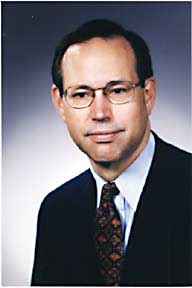-
- Experts: Civil union ban’s impact to be felt more in homes than workplaces
- Openly gay Hispanic woman wins election as Dallas sheriff
- Federal lawsuit challenges state’s ban on same-sex marriage
- Bush win, antigay amendments bring sadness not regrets in S.F.
- Exit polls: A look at voters and their thinking
- Opponents of same-sex marriage ban say fight will continue
- National News Briefs
- World News Briefs
national
Experts: Civil union ban’s impact to be felt more in homes than workplaces
Economic effect impossible to predict, they say
Published Thursday, 11-Nov-2004 in issue 881
COLUMBUS, Ohio (AP) –The economic effect of Ohio’s new ban on civil unions will be difficult or even impossible to predict, business and legal experts said.
Ohioans amended the constitution to deny legal status to all unmarried couples with 62 percent of the vote on. The measure, which takes effect Dec. 2, was the broadest of same-sex marriage bans passed in 11 states.
The states that ban same-sex marriage will experience a subtle but hard to measure “chilling effect” from gay and lesbian employees who leave jobs or choose not to take a job in a hostile environment, said Rene Petrin, president of Boston-based Management Mentors Inc., a Boston consultancy that develops business mentor programs.
“You don’t know if someone leaves because they’re gay or lesbian,” he said. “Most people are going to quietly make a decision.”
But the whole debate over impacts on employee recruiting and so-called “brain drain” entirely misses the point of what’s wrong with Ohio’s economy, said Ed Morrison, director of the Center for Regional Economic Issues at Case Western Reserve University in Cleveland.
“The state of Ohio faces very serious, fundamental problems,” he said. “The fact that we’re spending any time on this issue illustrates distorted priorities.”
The economy loomed large in a campaign over an ostensibly moral question. Exit polls conducted for The Associated Press showed the amendment passing across many demographic groups, but the one group reliably opposed was those who said Ohio’s economy is “poor.”
Lost convention revenue and other business in Cincinnati helped that city repeal an 11-year-old charter provision banning laws protecting gay and lesbian people from discrimination. Voters in the city repealed that measure by about the same margins in which they approved the statewide amendment.
Mayor Charlie Luken said voters thought “long and hard,” and distinguished between defining marriage and outright discrimination, such as firing people over their sexual orientation.
The “side show” of same-sex marriage only distracts from dealing with a struggling educational system, an outdated tax code and relentless global economic pressure, Morrison said.
“We’ve lost over 200,000 jobs. We’re just not prepared,” he said. “Domestic partner benefits are not the core issue when we deal with globalization.”
The marriage amendment passed in every Ohio county but Athens, home to Ohio University, but the margin was smaller in urban centers like Columbus.
Quentin Fields, personnel manager for a Columbus law firm, said he voted for Republican President Bush but against the amendment.
“If it creates more bureaucracy, it’s not going to help,” he said. “Our economy’s in the toilet. People will move.”
Large Ohio employers that offer insurance to employees’ domestic partners, such as Procter & Gamble Co., Federated Department Stores Inc. and Nationwide Mutual Insurance Co., said they don’t expect that to change.
Ohioans will be surprised by the amendment’s reach into home lives, said Marc Spindelman, an Ohio State University law professor. Attorneys for unmarried clients charged with domestic violence “will trot out Issue 1 in service of their defense,” he said.
While Ohioans age 60 and over voted 2-to-1 in favor of the amendment, AARP-Ohio opposed it. Spokesperson Kathy Keller said the amendment hurts senior citizen couples who don’t remarry because they don’t want to lose health benefits from a deceased spouse.
“This takes away the rights that older unmarried couples need to support and care for one another,” Keller said.
Gov. Bob Taft, who supported the portion defining marriage as one man and one woman, said he opposed the amendment because of its “vague and ambiguous” second sentence. That part denies legal status for relationships that “intend to approximate the design, qualities, significance or effect of marriage.”
“It’s my hope [courts] will interpret it narrowly and not extend it to all sorts of private relationships,” Taft said.
|
|
Copyright © 2003-2025 Uptown Publications


